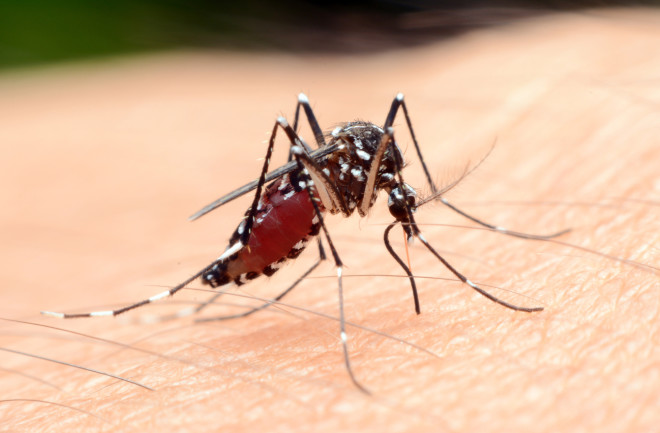In May 2023, a person caught malaria from a bug bite in Sarasota County, Florida. In response, the Florida Department of Public Health went to war with Anopheles, better known as the marsh mosquito.
Ground teams poured insecticide into standing water. Airplanes sprayed down remote wetlands with larvae-killer. Finally, after two months, marsh mosquitoes — and new malaria cases — became scarce again.
“It was a full-on assault on these mosquitoes,” says Florida Department of Public Health Press Secretary Jae Williams. “And I’ll tell you, it was very, very successful.”
Read More: Genetically Modified Mosquitoes May Protect The World From Disease
Florida and Texas Malaria Cases
All in all, eight Americans caught malaria from mosquitoes this summer — seven in Florida and one in Texas. Of these, seven people were hospitalized. The cases were the first American, mosquito-borne malaria cases in two decades, since an outbreak in Palm Beach, Florida in 2003.
To be clear, these cases were unique because they were “vector-borne.” In other words, the patients caught malaria from a mosquito, rather than from a transfusion of blood or a contaminated needle. According to the CDC, prior to the COVID-19 pandemic, an average of 2,000 diagnoses of travel-related malaria occurred in the U.S. every year.
The recent outbreak in Florida most likely started the same way: Someone brought malaria home with them after a trip abroad. However, once this person was bitten by an Anopheles mosquito in the states, malaria proliferated throughout the native mosquito population.
During the summer, the CDC captured and tested 407 mosquitoes in Florida. Three of the insects contained Plasmodium vivax, the parasitic protozoa responsible for malaria.
Though anyone can catch malaria, those who spend extended periods outside are most at risk. Of the seven Florida cases, for instance, three patients were homeless. In Texas, the lone malaria patient worked at a job that required them to spend “time outside at night.”
Read More: Why Do Mosquitoes Love Biting Some People More Than Others?
Is Malaria In The U.S. Here to Stay?
Justin Cohen, an infectious disease epidemiologist and vice president of a Malaria eradication program at the Clinton Health Access Initiative, warns against touting the Florida cases as a harbinger of a future epidemic.
“It was an endemic disease going back 100 years,” he says. “It went away because we got really good at malaria control interventions.”
According to Cohen, if public health officials continue to take small outbreaks like the ones in Florida seriously, malaria is unlikely to become a major issue in the U.S. After all, the most difficult task — eradicating the disease in the first place — is already done. Maintaining this is far easier.
Cohen hopes that eradication can be accomplished in other places as well, such as the Eastern Mekong region, which includes parts of Vietnam, Cambodia and Laos.
“We’re working with the [World Health Organization] and the governments to eliminate malaria altogether, and I think we’re going to be successful in the next few years,” he says.
These efforts are driven, in large part, by U.S. funding. As of 2022, the Global Fund, to which the U.S. is the top donor, had invested more than $16.4 billion into malaria control programs. This funding, on top of saving thousands of lives, has the added benefit of decreasing travel-related malaria cases at home.
“If we can keep that kind of investment going,” Cohen says, “we’re going to keep people safe in the U.S. as well as in the places that are truly affected by this on a daily basis.”
Read More: Malaria Vaccines Could Be Game-Changers

